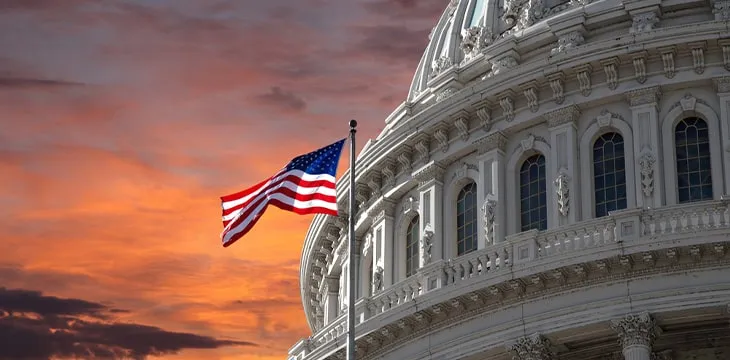|
Getting your Trinity Audio player ready...
|
Nine United States lawmakers have written a letter to the U.S. Attorney General requesting the Department of Justice’s (DOJ) assessment of a digital dollar.
Led by ranking member Patrick McHenry (R-NC), the nine Republicans on the House Financial Services Committee are seeking a copy of the DOJ’s “assessment of whether legislative changes would be necessary to issue a CBDC (central bank digital currency).”
#NEW: @PatrickMcHenry, @RepFrenchHill, and members of Committee Republicans' Digital Asset Working Group are demanding Attorney General Garland provide his assessment on the @federalreserve's authority to issue a #CBDC.
👇 Read the letter 🔗 https://t.co/RW3k49587e pic.twitter.com/aSUrHy2CZB
— Financial Services GOP (@FinancialCmte) October 5, 2022
In his executive order on digital assets earlier this year, President Joe Biden called on the DOJ to assess whether new legislation is needed for the Federal Reserve to issue a digital dollar.
This request did not sit well with the Republican legislators who, in their letter, made it clear that all legislation matters should be left to Congress.
“However, the appropriate place for the discussion on whether authorizing legislation is necessary is in the legislative branch,” said the letter, which was also signed by Tom Emmer (R-MN), Ted Budd (R-NC), and Warren Davidson (R-OH).
The legislators reminded the Attorney General that “Congress’ authority over coining money is exclusive” and that it has the power to coin money and regulate its value.
The members further emphasized that the House Committee on Financial Services has spent considerable time and resources examining the risks and benefits of a digital dollar. This review has included looking into whether the Fed can issue a CBDC without authorizing legislation—the same responsibility Biden had relegated to the DOJ.
“Committee Republicans emphasized in our CBDC principles that the Federal Reserve does not have the legal authority to issue a CBDC absent action from Congress.”
The legislators want the AG to provide the DOJ’s assessment and any corresponding legislative proposal to the committee no later than October 15.
Even if Congress, the DOJ, the Treasury, and the Fed all concur on a digital dollar, it would still take at least five years before it’s launched to the masses, Fed Vice Chair Lael Brainard previously stated.
To learn more about central bank digital currencies and some of the design decisions that need to be considered when creating and launching it, read nChain’s CBDC playbook.
Watch: The BSV Global Blockchain Convention presentation, CBDCs and BSV

 07-29-2025
07-29-2025 





